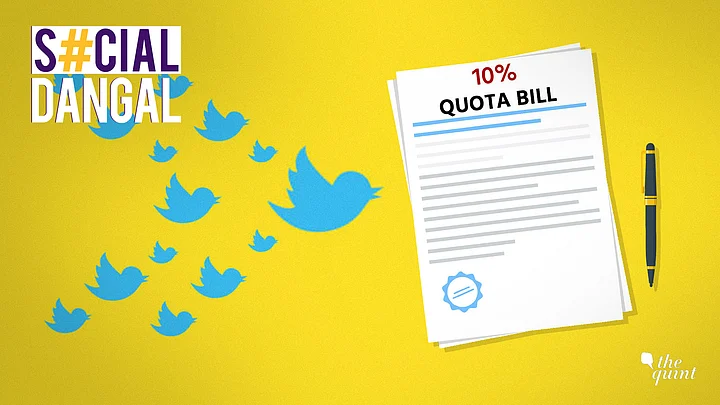The Parliament cleared the 124th Constitution Amendment Bill on Wednesday, 9 January, and it is awaiting the President’s nod, but the questions surrounding it just don’t seem to end. The Bill amends key articles in the Constitution to provide 10 percent quota in government jobs and educational institutions, to economically weaker sections of the general category.
The timing and suddenness of the announcement along with the absence of proper quantifiable data on “economically weaker sections” have provided enough ground for debate.
There were heated discussions on Twitter about the political aims behind the Bill and its ramifications on the reservation scenario in India.
One of the aspects which is being debated is: Who are the beneficiaries of the Bill? The Bill covers households with an annual income of Rs 8 lakh and below. Isn’t that most of the country? Twitter asked.
Certain alleged discrepancies in the Bill were also pointed out.
Even supporters of the Bill seemed to be a bit iffy about the Rs 8 lakh cap.
Some also argued that the Bill defeats the purpose of reservation, which is to provide social justice. Reservation is essentially meant to uplift social groups who are systemically oppressed and not to reduce poverty, social media users pointed out.
Other Twitter users used evocative examples to explain how caste privilege works and argue that reservation was never actually about income.
There was also discussion on the issue of job crisis in the country, with Twitter users arguing that the quota would make no difference unless more jobs are created.
A petition has been filed by Youth For Equality, an organisation against caste-based reservation, in the Supreme Court challenging the Bill. While the law takes its course, maybe the the government could go through people’s reactions on social media platforms like Twitter and answer a few pertinent questions that have been raised.
(At The Quint, we question everything. Play an active role in shaping our journalism by becoming a member today.)
